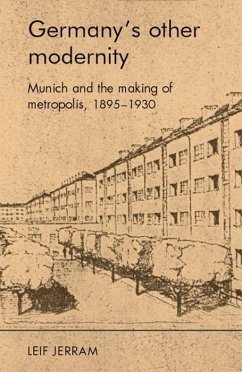This book is about what it meant to build a city in Germany at the turn of the twentieth century. It explores the physical spaces and mental attitudes that shaped lives, restructured society, and conditioned beliefs about the past and expectations for the future in the crucial German generations that formed the young Reich, fought the Great War, and experienced the Weimar Republic. Focusing on ordinary buildings and the way they shaped ordinary lives, this study shows how material space could influence the lives of citizens, from the ways the elderly slept at night to the economy of the city as a whole. It also shows how we integrate the spaces and places of our lives into our explanations of politics, culture and economics. It is aimed at those who want to understand urban modernity, Wilhelmine and Weimar Germany, the use of space in social policy and politics, and the design of cities.








